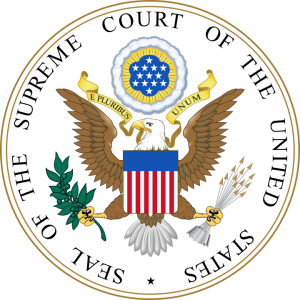 On January 13, 2015, the United State Supreme Court heard oral arguments in the matter of Kellogg Brown & Root Service, Inc., et al., v. United States, ex rel. Benjamin Carter that we previewed last year. This qui tam case raised two issues for the Court to decide:
On January 13, 2015, the United State Supreme Court heard oral arguments in the matter of Kellogg Brown & Root Service, Inc., et al., v. United States, ex rel. Benjamin Carter that we previewed last year. This qui tam case raised two issues for the Court to decide:
- Can the Wartime Enforcement of Fraud Act’s statute of limitations tolling provision be applied to civil claims brought by private citizens?
- Does the FCA’s “first-to-file” requirement act as a “one-case-at-a-time” rule, allowing as many related claims to be filed as long as no prior claim is pending?
From the Justices’ questions, it seems likely that the first issue will be lost by the whistleblower and won by the petitioner Kellogg Brown & Root Service Inc. If that happens, the result will be that the statute of limitations will not be tolled by the Wartime Enforcement of Fraud Act. The Court focused in on the statute’s use of the word “offense” and seemed to agree with the petitioner that the word applied only to crimes rather than civil violations. In order to move the proceeding along, Justice Sonia Sotomayor actually asked the petitioner to assume “we agree with you,” which is generally a good sign for a Supreme Court litigant.
The second issue could come down either way or not be reached at all since resolution of the first issue in favor of the petitioner alleviates any need to even address the second.
The second issue was whether the “first to file” bar applies once an earlier case has been dismissed before the merits were decided. The “first to file” bar is what creates the “race to the courthouse” in qui tam litigation. In this case, the qui tam was re-filed after an earlier case was dismissed without a determination of the merits.
The Justices here seemed to side with the government, picking apart the petitioner’s reading of the statute that would effectively negate the word “pending” from the statutory text. Justice Sotomayor questioned this aspect of petitioner’s argument and what would happen to the “original source” rule should the petitioner prevail:
[Y]ou’re not giving “pending” any meaning, you’re also destroying the force of an original source. I mean, the the public disclosure bar doesn’t apply to an original source. And you’re sort of blocking original sources from bringing suits, when a prior case involved a dismissal for a technicality, or a dismissal because this was in the public domain. But that’s not true for an original source.
The Justices thus seemed to be willing to adopt the government’s view that only a decision on the merits could bar a subsequent qui tam case, since the government already had an opportunity to investigate the claim and the claim was resolved one way or the other. After all, petitioner’s view would lead to the absurd result of major frauds going unpunished because an earlier case was filed and dismissed before the facts were heard.
It’ll be interesting to see if the Court even reaches the second issue, but if it does, we are hopeful that it rejects the petitioner’s overly broad interpretation of the “first to file” bar.


